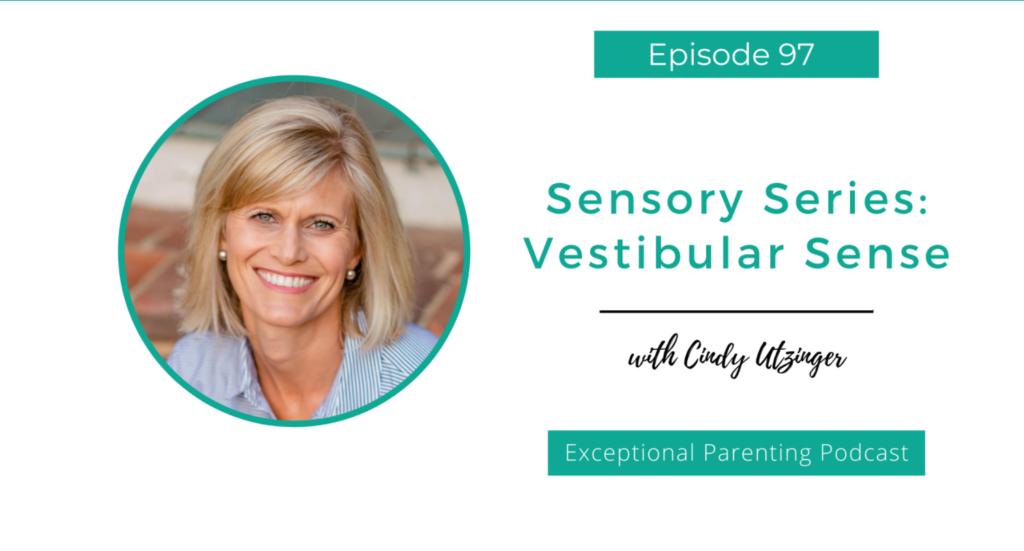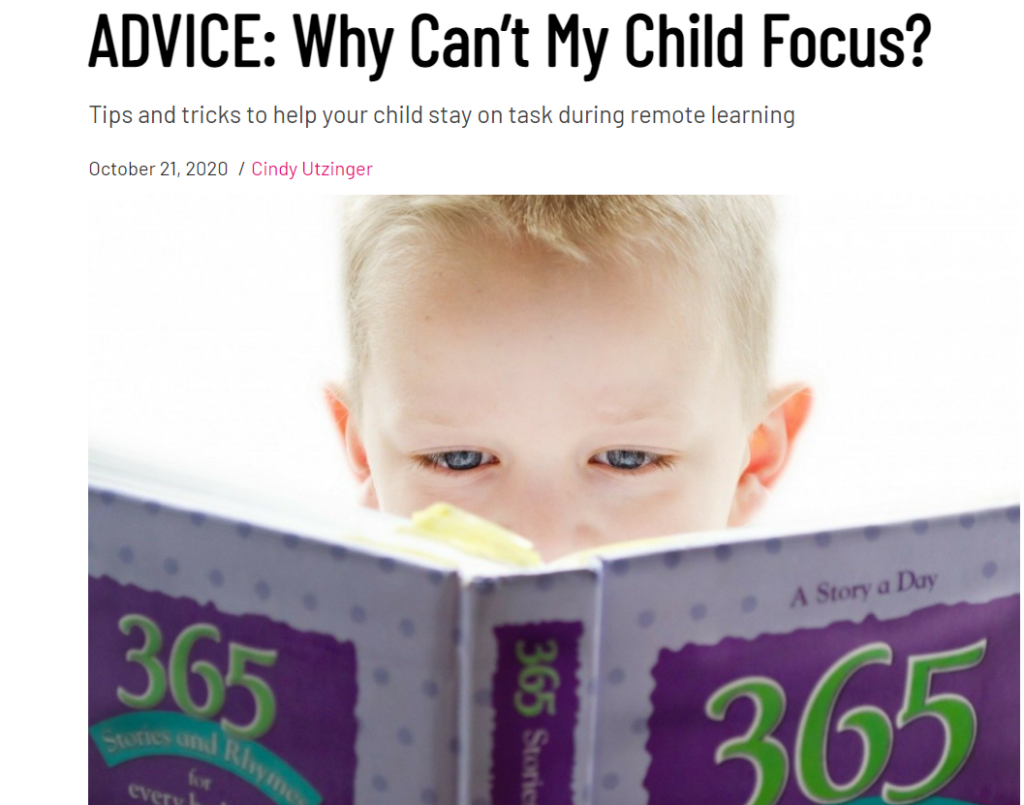Are you an adult with sensory issues? Or, do you know an adult with sensory issues? It makes me laugh but since the release of my book, I have been asked repeatedly “Can your next book be Why is My Husband Doing That?”
It seems as though a lot of people after reading the book are realizing that just like with their kid’s behavior, the root of many of their spouse’s behavior may also be sensory in nature. And I’m not just picking on the husbands because us wives can also be guilty.
These sensory issues I talk about may be sensory overload, difficulty focusing, sensitivity to touch, sensitivity to noises, or sensitivity to movement. I have been asked what can be done to help an adult or older teenager or “Is it too late?”
I want to try to answer that question to the best of my ability but must give a disclaimer: addressing adults with sensory quirks has not been an area of focus in my career. I do feel, however, that I can offer some helpful advice. I am including a link to the American Occupational Therapy Association’s fact sheet that has more information in case you want to check that out.
We ALL have sensory issues
So here it goes. Every single one of us has our own set of “quirks” that are rooted in the sensory system. For example, I have an auditory sensitivity. I drive my family crazy turning the TV down to a low whisper. When I am in a situation where lots of people are talking, kids are screaming, background music is playing, etc., I have to put my strategies in place, so I don’t lose it. If I don’t, I can often handle it inappropriately by yelling at my kids or husband.
My other big quirk is light touch or a tactile sensitivity. If you’ve read my blogs or book, you know that light touch can feel noxious to a person with tactile sensitivity. It can kick that person in to “fight, fright, or flight” mode (the same mode you’re in when you touch a hot stove, see the blue lights turn on behind you when driving, or feel a critter climbing on your leg). My daughter isn’t always a respecter of personal space and will often get right up against me with her arm gently brushing up against mine. I know this makes me sound like a horrible mom (This isn’t the only thing that will do that!) but it makes me crazy. It breaks my heart to explain to her that she has to stop touching me. I’m a little nicer than that about it but have to explain what that does to me and that I need either a deep hug or some personal space.
What do we do as adults about our sensory issues?
We have to remember that our brains have neuroplasticity. This means that as long as we are not in a place where true dementia is setting in, our brains can change and grow based on experiences and exposure. Can I be honest? This hasn’t worked for me. In fact, it only gets worse the older I get. I think this sounds good in theory but am not sure how well this works.
That leads me to what does work…
SELF-AWARENESS. When we understand what is going on either with ourselves, loved ones, or not-so-loved ones, it helps us to deal with it in an appropriate manner.
My theory is that a lot of adults have sensory issues (aka quirks) but don’t realize what is going on, so they don’t use appropriate ways to deal with it. When we don’t have self-awareness, it can lead to anxiety, tempers, bad habits such as overeating or smoking to manage stress, shutting down and believing we don’t have what it takes, isolating ourselves, etc.
How do we know what our sensory issues are? I may be biased, but I would say reading my book will help you gain a much clearer picture of the sensory system and resulting behaviors when things aren’t working just like they should. You can also look at the sensory checklist on my website to see what quirks you have that fall under the sensory umbrella.
Knowledge is key! The more you know, the more you can deal!
Let me give you some tips that I think will help your husband (wink-wink):
- Deep breathe-This is by far the easiest. You can do it anytime and anyplace. The key is to fill your belly with air. We spend so much of our day shallow breathing which keeps us in that “fight, fright, or flight” mode that I mentioned earlier. When we take deep breaths filling our belly with air, we activate the part of our nervous system that is responsible for relaxation.
- Create space in your day for a few minutes by yourself to regroup- I often sit in my car for a few minutes before walking into my house after a long noisy day at work. I also like to wake up a few minutes earlier than the rest of my family to make sure I have quiet time to myself to pull myself together before the chaos begins.
- Exercise- Besides the obvious benefits, exercise is also neurologically organizing. Whether, you are stressed, need to focus, or want to strangle your children, take just a few minutes (if that ‘s all you have) to walk around the block, climb sets of stairs, do some push-ups or planks, or do some jumping jacks or toe touches.
- Chew gum or chewy or crunchy foods- We have something called proprioceptors in our jaw muscles. Input to our proprioceptors is neurologically organizing. When you are stressed or need to focus chew gum or grab apple slices, carrot sticks, dried fruit leathers, a bagel, a chewy granola bar, or a cheese stick.
- Give lots of deep hugs- Hugs release oxytocin which is the “feel good” hormone but they also give proprioceptive input and we know that proprioceptive input is neurologically organizing. Hugs are a win-win. You get organized and you get to show your kids, spouse, or friends how much you cherish them.
- Use music to help lift you up or calm you down- Find what works for you. Some people need head banging music and others spa music. There’s no right or wrong…it’s personal preference. My daughter falls asleep to Alexa playing loud rock music. That would not work for me, but does the trick for her.
- Meditate– I know what you’re thinking…NO WAY do I have time or the concentration for it. Humor me and try it. You may just surprise yourself. My favorite one is Mindfulness Meditation. I’m someone who has a hard time quieting my mind and this one works wonders for me. It’s 10 minutes but well worth it.
- Use a fidget tool or stress ball- I know this sounds childish but even us adults need fidgets. I like to have something in my pocket like a paperclip that I can manipulate without anyone knowing what I’m doing. Again, this provides neurologically organizing input to help you focus. We all fidget. We will bounce our leg, bite our nails or pen cap, twirl our hair, or pick our nails. Fidgeting is good. Don’t stop, just make sure to do it in an appropriate manner.
I hope this helps. And please take a deep breath and know you are not alone. There isn’t a person out there without some sort of sensory issue (They just may not admit it!)
To dig deeper, please find me on facebook, check out www.cindyutzinger.com, or read more in Why is My Kid Doing That? A Sensory Approach to Understanding Your Child’s Behavior.



